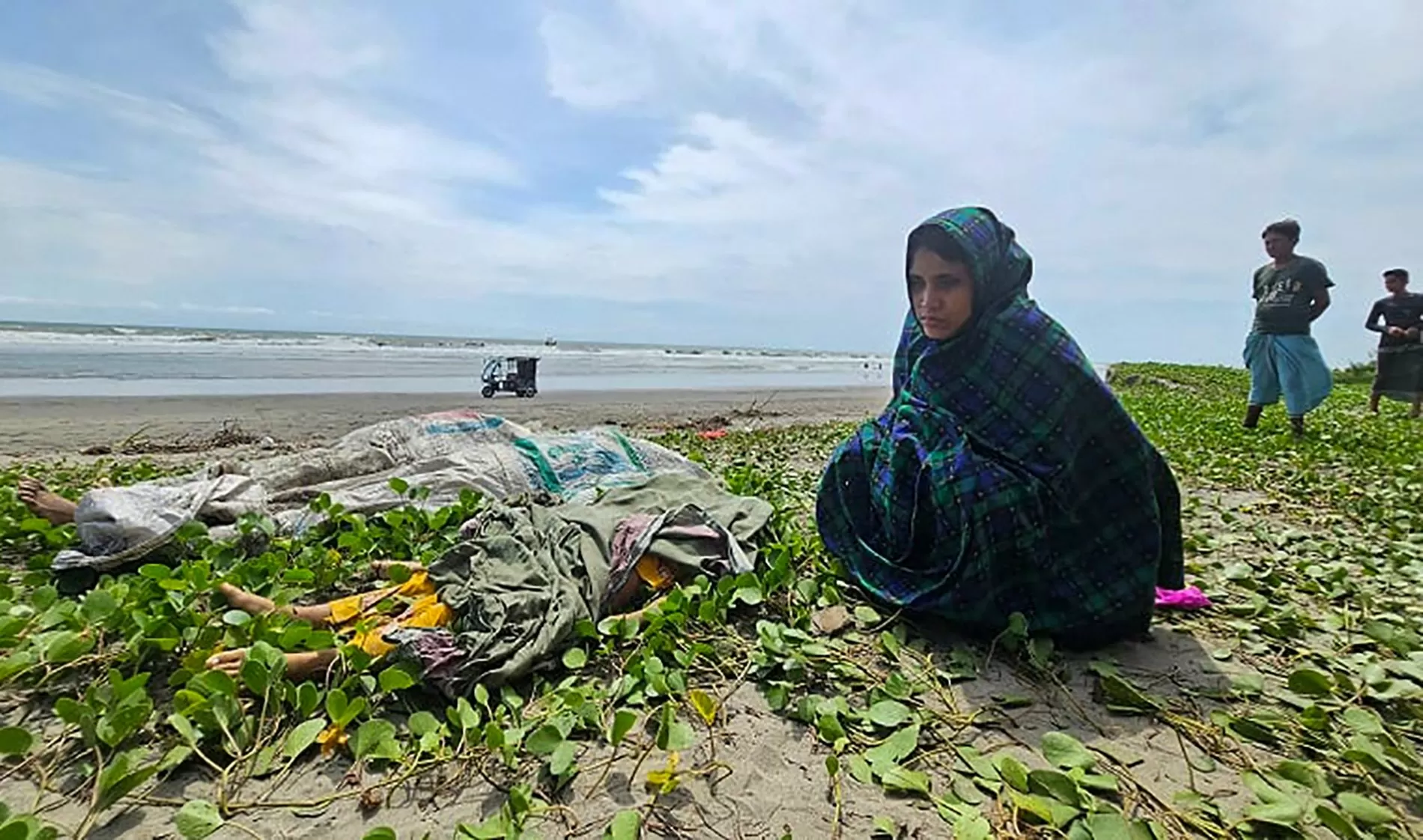Tens of thousands of Rohingya refugees from Myanmar who live in sprawling camps in Bangladesh marked the seventh anniversary of their mass exodus on Sunday. This date holds a significant meaning for these refugees as it marks the day they were forced to flee their homes and seek refuge in a foreign land. Despite facing unimaginable hardships and challenges, these refugees continue to hold on to hope and demand a safe return to their homeland. As we reflect on this poignant milestone, it is important to highlight the resilience and strength of these individuals and the need for immediate action to address their plight.
It has been seven years since the Rohingya crisis began, and the situation in both Myanmar and Bangladesh remains dire. The Rohingya, a Muslim minority group, have faced discrimination and persecution for decades in Myanmar, and in August 2017, a brutal military crackdown in Rakhine state forced over 700,000 Rohingya to flee to neighboring Bangladesh. This mass exodus has resulted in one of the world’s largest refugee crises, with the majority of refugees living in overcrowded and under-resourced camps in Cox’s Bazar, Bangladesh.
Despite facing unimaginable challenges, the Rohingya refugees have shown immense courage and resilience in the face of adversity. They have established vibrant communities, cultivated livelihoods, and built makeshift schools and mosques in the camps. Their determination and perseverance serve as a testament to their unwavering spirit and their desire to rebuild their lives and return to their homeland.
As the Rohingya community commemorates the seventh anniversary of their exodus, they are also using this opportunity to demand a safe and dignified return to Myanmar. They have been living in uncertainty and limbo for far too long, and they deserve to have their rights and dignity restored. The international community must take a more active role in finding a lasting solution to this crisis and hold the Myanmar government accountable for their actions.
The Rohingya refugees have repeatedly expressed their willingness to return to Myanmar if their safety and rights are guaranteed. However, the current conditions in Rakhine state do not allow for a safe and voluntary return. The Rohingya’s land and properties have been destroyed, and restrictions on their freedom of movement, education, and healthcare remain in place. In addition, the Myanmar government has refused to recognize the Rohingya as citizens, leaving them stateless and vulnerable.
The international community must put pressure on Myanmar to create conditions conducive to the safe and voluntary return of the Rohingya refugees. This includes addressing the root causes of the crisis, such as discrimination and lack of citizenship, and providing reparations for the atrocities committed against the Rohingya. It is time for the world to stand in solidarity with the Rohingya and demand justice for their suffering.
On this seventh anniversary, let us also take a moment to recognize the generosity and hospitality of the people and government of Bangladesh. Despite facing their own challenges, they have opened their borders and welcomed the Rohingya refugees with open arms. Their compassion and support have been crucial in providing lifesaving aid and protection to the Rohingya.
As we look towards the future, it is essential to remember that the Rohingya crisis is not a forgotten issue. The seventh anniversary of their exodus serves as a powerful reminder that we must continue to stand in solidarity with the Rohingya and demand a safe and dignified return to their homeland. Every individual has the right to live in peace and safety, and it is our collective responsibility to ensure that this right is upheld for the Rohingya refugees.
In conclusion, the seventh anniversary of the Rohingya exodus is a somber reminder of the ongoing crisis and the urgent need for a just and lasting solution. As we stand in solidarity with the Rohingya, let us also reaffirm our commitment to uphold their rights and dignity. It is time for the international community to take decisive action and work towards a future where the Rohingya can return to their homeland and rebuild their lives in safety and peace.





![Complete BritRail Pass Guide [Types, How to Use It, Pros + Cons]](https://inside-news.uk/wp-content/uploads/2025/06/00221EB4-BCA2-4DBB-6CD4-83DBC37D71FA-120x86.webp)
















